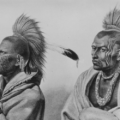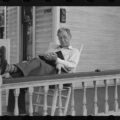Remembering Roger Ebert
“We know more, much more, about Marilyn Monroe and Jack Nicholson than we know about Julius Caesar and Thomas Jefferson. We know what they looked like when they stood up and walked to a window, how they sounded when they were sad, and how they smiled when something struck them as funny. We know because we have seen them in the movies.” —Roger Ebert, Awake in the Dark
The most influential film critic our nation has produced, Roger Ebert knew a lot, and not only about the movies and their stars. Ebert was a brilliant observer of the ongoing parade of life. Although he did not set out to be a movie reviewer, it was inevitable that the rich universe of film would consume him. Movies, like his countless commentaries on them, are vital records of the human pageant. Ebert taught the rest of us—his raft of students—how to see and reflect upon film, and in so doing, how to approach life itself.
There was never anything small about Roger Ebert, from his ever-expanding waistline through college and well beyond, to his stupendous social circle (he knew everyone), from his incessant energy and curiosity, to his easy residence in all corners of the world. His was a fecund, teeming, ravenous mind. Movies brought constant joy to Roger, filling him with all the panoply of emotions that make human existence wondrous despite our personal failings and smallness.
Always a prolific writer, Ebert produced twenty-two thick volumes about film, the world we inhabit, and himself. Life Itself may well be the best of these, an absorbing book that ironically contains no reviews at all. Instead, it reveals in lucid detail the facts, faults, and fixations that shaped the existence of one of our most interesting and endlessly entertaining fellow citizens.
Annabel and Walter Ebert made a handsome couple, but a pair was scarred by bad luck and often-faulty judgment. They were, in their son’s view, fashionable “stage parents”—both stylish dressers (within their means), “he with a movie star mustache, she with a knock-out figure.” The two were intent on encouraging their “gifted” boy (their favorite term for him). Yet, despite their enthusiasm, their uncommonly bright only child remained always something of a mystery to both of them.
Annabel was a devout Catholic who wanted Roger to become a priest (not a chance!). When he was of college-age, she took up the unusual practice of getting drunk with him, and often; the alcohol and non-stop smoking were her eventual undoing. Even after his sensational undergraduate career at the University of Illinois, his Rotary fellowship to the University of Cape Town, his acceptance into the doctoral program in English at the University of Chicago, and joining the staff of the Chicago Sun-Times, Annabel Ebert never understood what it was that her son did for a living: “And does Roger still just…go to the movies?” her friends would ask.
Roger’s father had a slightly better grip on his boy’s talents—but he, too, long had an alcohol problem and was always very much a loner. Unlike his wife, Walter eventually became sober, but for decades he continued to live shut up within himself as an electrician at the University of Illinois. Though Roger loved his father, the “rock of my childhood” who introduced him to books and to movies, Walter remained distant. His son must have wondered often, “what was he really thinking?”
Despite their limited means, it was great good fortune that the little family settled in Champaign-Urbana. The setting was to take on mythic proportions for the eager young boy. “Champaign was gathered at the feet of the University of Illinois,” he wrote, “like a medieval town outside the walls of a great castle. It employed us, it fascinated us, it was our fame. Its professors were knights who deigned to live among us.”
“This is the greatest university in the world,” his father often told him—and Roger long believed him. Why would he not? The University seemed to have “the first, the biggest, or the best of everything.” To speak of football alone, “Illinois had the first card formation, the first homecoming, the first forward pass, the first huddle,” not to mention the immortal Red Grange, “the greatest player of all time.” It also had “more fraternities and sororities than anywhere else” (still true). The most compelling Illinois superlative, no doubt, was the villainous computer HAL 9000 in Stanley Kubrick’s 2001: A Space Odyssey, who announced that he had been born in the computer lab at the University of Illinois in Urbana!
The brainy young high school student indicated a wish to go to Harvard, but that was clearly beyond the family’s means. Roger, in the end, was quite satisfied at Illinois. “I must truthfully say,” he later rote, “my only object in attending college was to take literature classes because they were fun. I would have happily remained an undergraduate forever.” It was at the University that Roger’s fledgling career as a journalist began to take notable flight.
Rising through the ranks at the “Daily Illini,” the school’s largely independent newspaper, Ebert soon became its Editor-in-Chief. By the time of his graduation in 1964, he had been named President of the U.S. Student Press Association. Unfortunately, as he noted, his ascending fame was matched by an ugly growth in his already considerable self-esteem. “As Editor of the ‘Daily Illini,’” he wrote, “I was a case study…I was tactless, egotistical, merciless, and a show-boat.” He had become “insufferably full of myself…a cocksure asshole.”
Upon graduation, Ebert moved to Cape Town. The change in scene led to a maturity and an awareness of the wider world. London, in particular, came to obsess Roger: from Russell Square, where (like so many first-timers) he stayed at an inexpensive bed-and-breakfast, to High Gate Cemetery—whose tombstones, Karl Marx’s among them, “leaned at crazy angles and graves gaped open”—to Sir John Soanes’ Museum in Lincoln’s Inn Fields, a famously overstuffed treasure house where every inch is filled “with an accumulation of books, furniture, oils, watercolors, drawings, mirrors, statuary, writing implements, rifles, pistols, brass buttons, coins, swords, rings, etchings, tapestries.” The elegant hoarder’s mentality appealed to the young American. Perhaps it reflected a mind like his own: interested in everything, fixated on a constant amassing of intriguing items, open to every possible new experience.
Eventually, Soanes’ Museum would become a model for the packed Chicago town house that Roger and his wife Chaz occupied for twenty years. “This house is not empty,” the critic bragged late in his life. “Chaz and I have added, I dunno, maybe three or four thousand books, untold numbers of movies and albums, lots of art, rows of photographs, rooms full of comfortable furniture, a Buddha from Thailand, carved elephants from India, African chairs and statues, and who knows what else!” He added, “I cannot do without a single one of these possessions, including more or less every book I have ever owned since I was seven, starting with Huckleberry Finn.”
Cities such as Paris, Rome, Venice, Stockholm, Edinburgh, and Cannes, as well as Cape Town and London, offered Roger private places where he could be alone with his thoughts, away from the daily mile-a-minute frenzy of his professional existence. One such spot was a tiny café near the Carlton Hotel in Cannes, described memorably in a piece mentioned by various Ebert readers as one of their favorites:
I took a table at a café, ordered an espresso and a Perrier, and began to sketch…Suddenly I was filled with an enormous happiness, such a feeling as comes not even once a year, and focused all my attention inward on a momentous feeling of joy, on the sense that in this moment everything was in harmony. I sat very still. I was alone at a table in a square where no one I knew was likely to come, in a land where I did not speak the language, in a place where, for the moment, I could not be found. I was like a spirit returned from another world.
At such moments, Roger imagined the possibility of an entire monkish life. In Two Weeks In The Midday Sun: A Cannes Notebook, now out of print, he writes:
A stranger in a strange land, sitting in a café, drinking espresso, sketching on a pad…I would see myself in the third person—that anonymous figure in the distance, crossing under the trees. Most of the time I am too busy to entertain such fantasies. I have filled my life so completely that many days there is no time to think about the fact that I am living it. But these moments, usually in a strange city, give me the illusion that in some sense the person that is really me sits somewhere quietly at a table, watching it all go by.
Few could express such thoughts so articulately, but who among us has not, from time-to-time, longed for a perfect moment far from the madding crowd? Of course, Ebert was no monk. He relished his growing celebrity—as the first film critic to win a Pulitzer Prize, the only one to have a star on the Hollywood Walk of Fame, often cited as the nation’s most influential reviewer—but the philosopher inside him also longed for the tranquility of a more profound life alone with his deeper thoughts.
Peace and quiet were rare qualities in Ebert’s manic adult existence. He moved to Chicago from Cape Town in 1967 with no real career plan, only vague notions of either college teaching or perhaps writing a column at the “Sun-Times” like his early hero Mike Royko. Neither was to be. Instead, Ebert was handed the job of film critic by the Chicago Sun-Times. He was thrust onto a carousel of movie stars and directors, White House denizens and talk-show hosts. But first, he had to teach himself what film criticism was all about—he had never taken a film course—even as he was setting sail on an ocean of reviews, interviews, and commentaries such as the world had never seen.
Roger Ebert was a quick study, and he soon found mentors all around him—Royko, of course, as well as Bill Mauldin, Studs Terkel, and Father Andrew Greeley in the Chicago newspaper world, and The New Yorker’s legendary Pauline Kael, whom Ebert was eventually to succeed as America’s greatest film reviewer. He achieved this by allowing film reviews to become much more than reflections on plot and performance, cinematography and sound. Ebert wrote of the meanings behind the film, the human element:
Movies are hardly ever about what they seem to be about…if you pay attention to the movies they will tell you what people desire and fear…Look at a movie that a lot of people love, and you will find something profound, no matter how silly the film may seem.
This may seem a truism, but look at Ebert’s dictum in practice and you’ll see what kinds of complex moral and philosophical threads he is able to weave:
The secret of The Silence of the Lambs is buried so deeply that you may have to give this some thought, but the secret is that Hannibal Lecter is a Good Person. He is the helpless victim of his unspeakable depravities, yes, but to the limited degree that he can act independently of them, he tries to do the right thing.
This is not to say that he missed, or avoided, opportunities to write about film with clarity and authority. Life Itself and Awake in the Dark are littered with quintessential reflections on the medium:
Compared to the great movie stars of the past, modern actors are handicapped by the fact that their films are shot in color. In the long run, that will rob most of them of the immortality that was obtained even by second-tier stars of the black-and white-era. Peter Lorre and Sydney Greenstreet are, and will remain, more memorable than most of today’s superstars with their multimillion-dollar paychecks.
Not content with his success as a writer, Ebert and his long-time partner, Gene Siskel, virtually invented film criticism for television. Their “thumbs-up, thumbs-down” signature became the standard of the industry. Having improbably made Chicago “the TV film criticism capital of the world,” Siskel and Ebert seemed omnipresent. In fact, they appeared on the Letterman program so often that Dave’s stock answer when people asked him why he had two interview chairs on his set was “Siskel and Ebert.”
Ebert’s easy access to people such as Sophia Loren, Martin Scorsese, Werner Herzog, and Robert Altman soon opened doors even further afield to Bill Clinton and Ingmar Bergman. The passage of such celebrities through his daily life inevitably led to an inordinate amount of name-dropping in Roger’s personal writing. But rather than irritation—or even envy—his fawnings about the famous and notorious, Ebert’s readers came to accept the glittering celebrity as part of Roger’s world, the glue of that world, in fact. This fact is seen most clearly in his interviews.
“My secret as an interviewer,” said Ebert, “was that I was actually impressed by the people I interviewed; not only by Bill Clinton, John Wayne, and Sophia Loren, but by Sandra Dee, Stella Stevens, and George Peppard. I am beneath everything else a fan…I feel reluctant to write in a hurtful way.”
John Wayne, we learn, “was utterly without affectation. He was at home…He didn’t perform, he embodied.” We discover that Robert Altman spotted Shelly Duvall as a waitress in a Houston diner and made her into a star. Woody Allen, Roger reports, “told me in 1971 that there wasn’t a day when he didn’t give serious thought to suicide.”
“The central triumph of Tom Hanks as movie actor,” Roger reports,” is that, most of the time, we believe that he thinks a lot like us, and does more or less what we would do, but that he somehow does it on a larger or more ennobling scale. It is the James Stewart quality. But few actors can obtain it.” As for Stewart himself, Ebert confesses that “after five minutes with him, you are likely to discover, to your embarrassment, that you are doing a Jimmy Stewart imitation. ‘Don’t let it bother you,’ Stewart said, smiling. ‘Sometimes I wonder if I am doing a Jimmy Stewart imitation myself.’”
Roger’s own favorite movie star, by far, was Robert Mitchum: he “had never given a damn about anything” and thus somehow came to represent “the impenetrable mystery of movies.” Mitchum once told Ebert that he had asked his wife: “Dorothy, why do they think I’m such a big deal? You know me as well as anyone, and you don’t give a shit. So why do they care?” And his wife replied, “Mitch, it’s because when you are up there on the screen, they’re smaller than your nostril.” “The big screen,” Roger adds, “makes actors into gods, into personalities so large and overwhelming that they enter our dreams and fashion our ideas about what men and women should be…the great stars do have something magical, but the screen itself plays an important role in the process. (That is why we never care as deeply about TV stars as we do about movie stars.)”
Yet if Mitchum was Ebert’s favorite film star, his favorite interviewee was Lee Marvin—“who also didn’t give a damn about image.” Rather than guide their conversations in any particular direction, Roger just let Marvin talk, and his talk was profane and hilarious:
Michelle (Triola, Marvin’s girlfriend) came up behind him with a Heineken. “Thanks, sweetheart.” He walked back into the living room and sat down. “What was that we saw? Bob and Carol and Bill and Ted? What a piece of shit that was. Good performers, but what a piece of shit.”
“I loved it,” Michelle said.
“You go for all that touch-me-feel-me bullshit anyway,” Marvin said. “Esalen. They take your money and teach you to put one hand on two nipples. Big fucking deal, baby.”
“It’s about love,” Michelle said. “It’s looking at people. Look at me with love, Lee.”
“Take off your clothes, baby.” Whistle. “Who takes the Pill for us now?” Pop! “LaBoo (Marvin’s dog), come in here, you mean black prince.” Laboo came in from the porch and settled down on the rug with resignation and a sigh. “And she still wants to marry me,” Marvin said. “It used to be, we’d check into a hotel, it was Mr. Marvin and Miss Triola. So she changed her name to Marvin, to save all that embarrassment (the interview was in 1970). Now it’s Mr. Marvin and Miss Marvin…”
Perhaps his single most unusual interview came from an unexpected source: “I had been granted a private half hour with Dolly Parton, and as we spoke I was filled with a strange ethereal grace. This was not spiritual, nor was it sexual [though he had often admitted to a major breast fetish]. It was healing and comforting. Gene (Siskel) listened, and said, ‘Roger, I felt the exact same thing during my interview with her.’ We looked at each other. What did this mean? Neither one of us ever felt that feeling again.”
Cancer took Roger Ebert this year. “No good movie is too long,” he wrote. “No bad movie is short enough.” His was a good life that would have seemed, inescapably, too short. Aware that his end was approaching, Ebert was kept strong by his marriage to Chaz. “Her love,” he said, “was like a wind pushing me back from the grave.” Giving up her lucrative practice, Chaz had become Vice President of the Ebert Company, which had grown into an empire well beyond Roger’s poor business acumen. Together they put Roger’s illness into a remarkable perspective, far removed from the inadequacies of his shaky childhood Catholicism:
I’ve had a conviction of invulnerability through all of my illnesses. I don’t have a lot of fear…I fear pain more than death. Now I know something I didn’t know before, which is that after my surgeries failed, I could live a perfectly happy life. I could no longer eat, drink, or speak. But after a time I didn’t miss these. My cancer is very slow and insidious…The bastard is quite likely lurking somewhere as I write. I’m sixty-nine, but in excellent health. I am happy and working well.
“I may seem tragic to you, but I seem fortunate to myself. Don’t lose sleep over me.” The cancer and many surgeries had turned Ebert, by the end, into a self-described latter-day Phantom of the Opera (see the unforgettable full-page photo taken near his final year for an Esquire article written by Chris Jones—it is reproduced in Life Itself). His own remarkably balanced view found some joy even in his gruesome deterioration. “I am so much a movie lover,” he noted, “that I can imagine a certain small pleasure in looking like the Phantom.”
To be sure, there were regrets. “What I miss is the society,” he writes. “Is it sad to be unable to eat or drink? Not as sad as you might imagine. I save an enormous amount of time. I have control of my weight…What’s sad about not eating is the experience…The loss of dining, not the loss of food…The food and drink I can do without easily. The jokes, gossip, laughs, arguments, and memories I miss.” This is indicative of Ebert’s whole life, really, which brimmed with humanity and compassion, even in the face of death:
I know it is coming, and I do not fear it, because I believe there is nothing on the other side of death to fear. What I expect to happen is that my body will fail, my mind will cease to function, and that will be that…Kindness covers all of my political beliefs. I believe that if, at the end, according to our abilities, we have done something to make others a little happier, and something to make ourselves a little happier, that’s about the best we can do. We must try to contribute joy to the world.
About Robert Chambers
Bob Chambers was born and grew up in North Carolina. He was educated in the public schools of that state and at Duke, Yale, and Brown Universities. For more than three decades he taught American literature and served as an academic administrator at Yale, Bucknell, Western Maryland College (now McDaniel College), and at Trinity College of the University of Melbourne in Australia. He was for sixteen years President at Western Maryland. He also was for five years a Senior Consultant with Marts & Lundy, Inc., a major international firm assisting colleges, universities, and preparatory schools with their fund-raising needs. A dedicated traveler, he has visited 66 countries and five continents, living for a time in England, Ireland, Japan, and Australia, as well as in various parts of the United States. Now retired, he resides in Gainesville, Florida, and the Coachella Valley of California.





